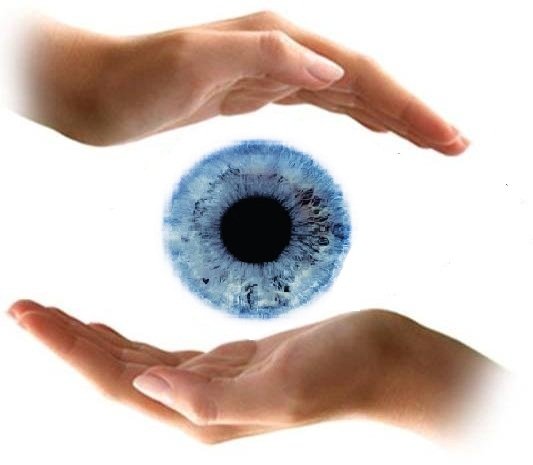Eye Doctors in Andalusia: Relied On Professionals for Vision Health
Eye Doctors in Andalusia: Relied On Professionals for Vision Health
Blog Article
Is Refractive Surgical Procedure Right for You? Factors to Think About for Better Eyecare
In the realm of eye treatment, the decision to undergo refractive surgery is a significant one that requires thoughtful consideration. As individuals look for clarity and flexibility from the restrictions of corrective lenses, various elements enter play when determining the suitability of such a procedure. From the details of one's ocular wellness to the details of everyday habits and personal expectations, each aspect holds importance in the broader landscape of refractive surgery candidacy. By assessing these essential elements with treatment and accuracy, a clearer path in the direction of educated decision-making arises.
Eye Health Analysis
When taking into consideration refractive surgical procedure, a comprehensive eye wellness analysis is important to assess the suitability of the procedure for each and every person. eye doctors in andalusia. This examination includes a series of evaluations and examinations conducted by an eye care specialist to establish the general wellness of the eyes, the visibility of any type of hidden problems, and the security of the refractive mistake
During the examination, various variables are taken into account, such as the person's clinical history, existing eye prescription, corneal thickness, student size, and tear film high quality. These analyses aid to recognize any contraindications to refractive surgical treatment, such as corneal irregularities, cataracts, or unattended eye infections. Additionally, the examination aids to take care of client expectations concerning the prospective results of the surgical procedure based upon their distinct eye qualities.
Eventually, the eye health and wellness evaluation is important in making certain the security and efficiency of refractive surgical procedure, as it provides valuable understandings right into the individual's eye wellness standing and aids identify the most appropriate therapy alternatives for accomplishing ideal aesthetic outcomes. (eye center andalusia)
Lifestyle Analysis
A comprehensive way of life analysis is essential in figuring out the viability of refractive surgery for an individual's aesthetic modification needs. Way of life elements such as occupation, pastimes, and day-to-day tasks play a crucial duty in the decision-making procedure concerning refractive surgical procedure. People with careers that involve a high degree of physical task or direct exposure to ecological components might have various visual needs compared to those with inactive desk jobs. Comprehending exactly how an individual's way of living might impact their vision post-surgery is crucial for handling assumptions and making sure optimal outcomes.
Furthermore, way of life behaviors such as sports involvement, outdoor tasks, or even skincare routines can influence the healing procedure and overall success of refractive surgery. As an example, people that take part in get in touch with sports may need to take additional precautions to protect their eyes during the healing duration. Additionally, people with comprehensive sunlight direct exposure might call for added post-operative care to prevent issues. By performing a detailed way of life assessment, eye treatment specialists can customize their suggestions and therapy plans to fulfill the unique needs of each individual, inevitably resulting in improved visual end results and contentment.
Assumption Positioning

Setting reasonable assumptions involves extensive pre-operative discussions between the client and the ophthalmologist. The cosmetic surgeon should transparently communicate the prospective dangers, benefits, and limitations of the procedure (andalusia pediatrics). Clients need to understand that while lots of people achieve 20/20 vision or better following refractive surgery, some might still need glasses for you can try these out specific tasks like reading or driving at night. Taking care of these expectations assists avoid frustration and discontentment post-surgery, bring about a more favorable general experience for the client.
Danger Evaluation

Factors that may enhance the threat of problems consist of age, certain clinical problems like autoimmune conditions, unsteady vision prescription, thin corneas, and impractical patient assumptions. In addition, choosing a knowledgeable and experienced specialist, following pre and post-operative treatment directions diligently, click reference and revealing any pertinent case history can help minimize dangers.
To lessen the probability of problems, ophthalmologists perform comprehensive pre-operative examinations to recognize any kind of contraindications to surgical treatment. They also go over the prospective threats and benefits with people during the appointment process. By engaging in open interaction and shared decision-making, both the ophthalmologist and the patient can interact to figure out if refractive surgical treatment is the appropriate choice based upon private threat profiles and preferred end results.
Appointment Significance
Taking into consideration the critical role of informed decision-making in assessing dangers and potential problems in refractive surgical procedure, the consultation process holds significant significance in directing people towards optimum results. Throughout the appointment, the eye doctor evaluates the client's eye wellness, refractive mistakes, and total suitability for surgery. This initial assessment is essential in establishing one of the most ideal treatment for each and every individual, thinking about variables such as corneal thickness, student dimension, and existing eye conditions.
Furthermore, the appointment serves as a possibility for people to discuss their assumptions, worries, and any concerns they might have relating to the surgical treatment. Clear interaction in between the doctor and the person is important to ensure sensible assumptions and a thorough understanding of the potential threats and benefits involved.
Furthermore, the appointment allows the cosmetic surgeon to explain the different surgical alternatives readily available, their particular results, and the post-operative care called for. This thorough conversation empowers patients to make well-informed choices concerning their eye treatment, resulting in much better complete satisfaction and results post-surgery.
Conclusion
Finally, individuals taking into consideration refractive surgery needs to go through a thorough eye health and wellness evaluation, evaluate their way of living habits, straighten their assumptions with possible outcomes, analyze the connected dangers, and focus on appointments with eye care experts. These factors play a critical function in read what he said establishing the suitability of refractive surgery for each person, making certain optimum outcomes and contentment with the procedure.
Clients thinking about refractive surgical treatment frequently have high assumptions concerning the outcomes, anticipating best vision without the need for glasses or call lenses. While refractive surgical treatment can considerably enhance vision and minimize dependence on aesthetic help, it is important for clients to recognize that outcomes may vary based on private factors such as the degree of refractive mistake, corneal thickness, and general eye health.
By engaging in open communication and shared decision-making, both the eye doctor and the individual can function with each other to determine if refractive surgery is the ideal option based on private danger accounts and desired results.
Considering the critical duty of educated decision-making in evaluating dangers and possible difficulties in refractive surgical procedure, the assessment procedure holds significant value in assisting people in the direction of optimum outcomes. During the appointment, the eye doctor assesses the individual's eye health and wellness, refractive mistakes, and general viability for surgical treatment.
Report this page